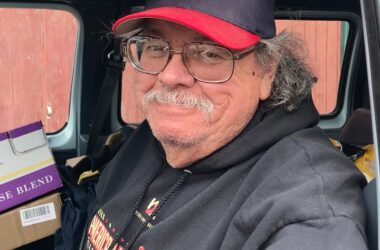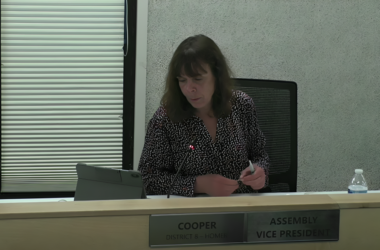Washington, DC – U.S. Senator Lisa Murkowski (R-AK), Vice Chairman of the U.S. Senate Committee on Indian Affairs (SCIA), introduced S.4365, the Veterinary Services to Improve Public Health in Rural Communities Act, to prevent and control severe and life-threatening zoonotic diseases (infections that spread between people and animals), in rural, tribal communities.
The bill would direct the U.S. Department of Health and Human Services and Indian Health Service (IHS) to provide Indian Tribes and Tribal organizations with veterinary services, including spaying and neutering domestic animals. Studies show that Native children have the highest rate of dog bite injuries in the nation, and the highest rate of dog bite hospitalizations occurs in rural Alaska, leading to high levels of rabies transmission.
“Unfortunately, in Alaska we are experiencing more frequent rabies outbreaks in wild animal populations. Rural communities are disproportionately at higher risk of rabies transmission to humans due to uncontrolled dog populations in remote areas of Alaska—which is particularly concerning given the challenges of providing health care in many rural and remote villages. Vaccinations and volunteer veterinary services are working hard to help address this issue, but are simply not able to meet the growing need for services. My bill would help bolster the veterinary workforce in Alaska, creating healthier and safer communities across the state,” said Vice Chairman Murkowski.
“Many rural Alaska communities currently lack access to veterinary care. This not only impacts animals but also threatens the health of people. This legislation is a big step in the right direction because it will allow Tribes and Tribal Health Organizations to provide a level of veterinary care in the communities we serve. The legislation recognizes the connection between human and animal health and works to achieve the intent of the Indian Health Care Improvement Act,” said Monique Martin, Vice President of Intergovernmental Affairs, Alaska Native Tribal Health Consortium.
“Thank you so much for your efforts to move this forward. If this bill is passed it will go a long way to solving a tremendous public health issue in rural communities. It won’t just help improve the health of the dogs in these communities, it will improve the health and well-being of the people by diminishing the threat of rabies, dog bites and the mental health impacts associated with the need to cull dogs. It addresses these problems at their root cause: dog overpopulation without access to preventive veterinary care. The approaches supported by this bill will save millions of dollars and much more importantly enhance the physical, mental and cultural health of the people living in rural communities,” said Arleigh Reynolds, Director of One Health, Department of Veterinary Medicine, University of Alaska Fairbanks.
The Veterinary Services to Improve Public Health in Rural Communities Act does the following:
The Veterinary Services to Improve Public Health in Rural Communities Act would:
- Amend the Indian Health Care Improvement Act to authorize IHS to provide public health veterinary services to Indian Tribes and Tribal organizations in IHS Service Areas where zoonotic diseases are endemic, and the risk of transmission is elevated due to uncontrolled dog populations.
- Allow Tribes and Tribal organizations to receive IHS funding for such services in their 638 self-governance compacts with IHS. These services would include eligibility to spay and neuter dogs.
- To fulfill the bill’s purposes, IHS should be provided with veterinary officers from the U.S. Public Health Service Commissioned Corps.
- Direct IHS to coordinate with the Centers for Disease Control and Prevention (CDC) and the U.S. Department of Agriculture (USDA) to implement the bill.
- Require a biannual report to Congress on the bill programs and use of funds.
- Direct USDA Animal and Plant Health Inspection Service (APHIS) Wildlife Services to conduct a feasibility study on deploying and improving the delivery of oral rabies vaccine in Arctic regions of the country.
- Amend existing statute to designate IHS as a co-coordinating agency in the National One Health Framework, an initiative to address zoonotic diseases and advance public health preparedness across federal agencies.






